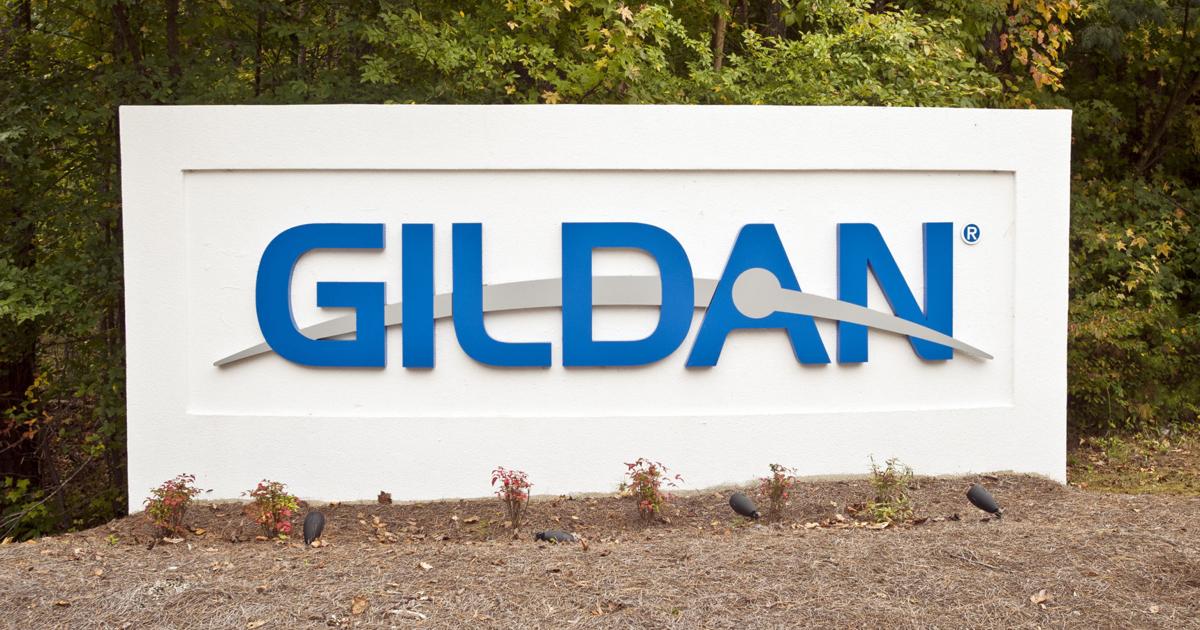Copyright minnpost

A tool to keep information from the public is being normalized in local government. In the interest of economic development, and at the behest of corporations, elected and appointed officials across the country are making ample use of nondisclosure agreements — legal documents that keep information, like details on a proposed business, out of the public eye. The American Economic Liberties Project, which works to reduce corporate power, sees the arrangements often tied to data center projects. In Minnesota, officials in Sherburne County signed NDAs in 2018 linked to a Google project that the company later abandoned. NDAs signed by St. Louis County commissioners and Hermantown officials in connection to a proposed data center caused a stir last month. Residents accused officials of shrouding a project with major land, water and energy use considerations in secrecy. The recent controversy in St. Louis County raised questions about how widespread NDA usage is, why they’re used, and how open records laws apply to such agreements. How common are NDAs? One of seven St. Louis County commissioners, Ashley Grimm was surprised when she recently learned that three of her colleagues had signed NDAs with a data center developer. The developer is Mortenson, but the city of Hermantown acknowledges that a “U.S.-headquartered Fortune 50” company is behind the proposed project in the city right outside of Duluth. Related: Data centers consume massive amounts of water – companies rarely tell the public exactly how much Grimm, the board’s 3rd District commissioner covering western Duluth, hadn’t heard of elected officials signing NDAs since her election in 2020. The precedent concerned her enough that she proposed a prohibition on it at the board’s Oct. 14 meeting. “People need access to their elected officials, and the question of this is whether or not businesses get exclusive access to elected officials for a long period of time before constituents do,” she said. Her proposal went nowhere. No other commissioner in attendance seconded it for discussion. Board chair Annie Harala said she would’ve seconded it for discussion if she hadn’t been away for a preplanned family engagement. Harala and commissioner Keith Nelson signed NDAs in March. Commissioner Keith Musolf signed one in November 2024. Harala, who joined the board in 2023 from a Duluth district, didn’t know of previous NDAs signed by commissioners. The agreements are common in business, she said, but public input on the issue has her reflecting on whether she’d sign the agreement again if given the chance. “I have a lot of mixed feelings about NDAs at this time,” she said. “I’m still considering how I want to address it in the future.” The League of Minnesota Cities doesn’t track NDA usage, said Patricia Beety, the organization’s general counsel. She described them as “not unheard of” in local government. Pat Garofalo, director of state and local policy for the American Economic Liberties Project (and not the former Minnesota lawmaker), said in his experience, NDAs are “extremely common.” He wrote a book, “The Billionaire Boondoggle,” about corporate economic development strategies, NDAs among them, and what politicians do to enable them. His estimation of NDA rampancy is admittedly anecdotal, informed by how frequently he comes across them in his work. Comprehensive data on them, he pointed out, is elusive by design. “By their very nature they’re secretive and you don’t find out about them until someone spills the beans, as happened up in St. Louis County,” he said. Public records requests would in all likelihood turn up more examples in Minnesota. Evidence seems to suggest that NDAs and data centers, which are being pursued in other Greater Minnesota communities, seem to go hand in hand. In the state of Virginia, records requests sent to every known locality linked to data centers showed 25 out of 31 had NDAs. Why are NDAs used? The economic development argument for NDAs gives government officials a seat at the table when a company is considering a project that would expand the tax base. Government officials can use the seat to gather information, while perhaps signaling a friendly regulatory environment to an interested developer. In St. Louis County’s case, much of the regulatory power over the data center actually rests in Hermantown’s, not the county’s, hands. County commissioners still hold sway, to be clear, like if they decided to offer tax subsidies. Harala feels there are misconceptions about what NDAs do and don’t mean. Signing it wasn’t a reflection of her view on the data center project, she said, and commissioners haven’t decided anything regarding the data center. “I didn’t meet with anyone from the organization,” she said. “It was to hear information from local government officials and to understand the role the county had.” Musolf, who along with Nelson didn’t respond to a MinnPost request for comment by publication time, addressed NDAs at the Oct. 14, meeting. Limitations on economic development pose high risks, he said. “If actions are made to stop some of these things we might as well hang a sign in St. Louis County that says we’re not here for business,” said the commissioner, whose district includes Hermantown. On a development timeline, Harala said NDAs are simply part of the preliminary phase. If a project gains traction, staff and elected officials would present information to the public and the public would have a chance to weigh in on it. Grimm’s issue with this can be likened to how difficult a train is to stop once it starts chugging down the tracks. An NDA, to her, allows companies to build political momentum behind the scenes without the public’s knowledge. “The political will is already in motion,” she said. “Not only that, but there’s also a question of did three county commissioners, did the minority of county commissioners, direct staff to put in a year or months of staff time into this project without it being a full county board discussion?” Corporations would bring up protection of trade secrets as reasons for NDAs being needed, Garofalo said, but the agreements are at their core about delaying when the public finds out about something. “Corporations know that a lot of these projects are going to be controversial and unpopular and that the best way to get what they want is to ensure that the public doesn’t find out about them,” he said. What NDAs do and don’t do Generally, the Minnesota Government Data Practices Act presumes government data is public. In June, an advisory opinion by Tamar Gronvall, commissioner of the Minnesota Department of Administration, released an advisory opinion noting that NDAs cannot limit access to government data. St. Louis County administrators came to the same conclusion in documents prepared for Grimm’s proposed prohibition on commissioner NDAs. The agreements “cannot bar access to government data” deemed public “if a request is made for such data,” the administrators stated. Prohibiting NDAs, in their view, would instead mean commissioners could no longer agree to “not voluntarily disclose public government data.” Another way to read this is NDAs do not keep public information under wraps if someone requests information, but NDAs can keep an elected official from voluntarily providing the information. At the very least, an NDA encourages elected officials not to willingly share information unless they’re compelled to by a request. Situations like this aren’t how the government should work, Garofalo said. “You shouldn’t have to jump through some insane hoop to figure out what’s going to happen in your community,” he said. “You shouldn’t have to make a formal records request or a formal data request.” NDAs appear particularly hard to stomach in a time when trust in government institutions is low and pushback against data centers is consistently fierce. Harala said she’s gotten a sense of this in recent weeks as she’s reflected more on the pros and cons of NDAs. “I don’t take it lightly the time people have taken to provide feedback,” she said. “I’ve learned a lot during this public process, and it has reaffirmed my commitment to make sure decisions are made in the light.” St. Louis County’s board, attorneys and economic development staff are planning to talk about NDAs at a meeting on Nov. 4. There will be time for public comment, Harala said. Since Grimm proposed a ban on NDAs, she said it feels like the county and other commissioners are doubling down on them as an acceptable way of governing. She doesn’t like the message that sends to constituents. “Elected officials are forfeiting their voice and their ability to answer questions,” she said. Harala would rather see state lawmakers take up the issue. Past NDA bans have been proposed in the past, in Minnesota and other states, but didn’t go far. A statewide policy would relieve pressure on counties that may feel like a ban would push businesses to another county, Harala said. “I firmly believe this is an issue that falls to the state Legislature to address so there are equitable economic development processes across the state,” Harala said.



